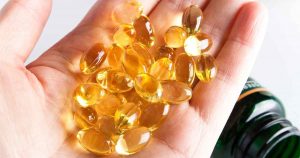In our last blog post, we discussed five ways to improve your oral health in the coming year. One suggestion was to eliminate one junk food daily. Expounding on that theme, let’s discuss the problem of added sugars and ways to reduce our intake of them.
I Am Addicted To Sugar. What Can I Do?
This question came up at a perfect time. A study just came out showing that sugar-sweetened beverage consumption declined for both children and adults in the United States between 2003 and 2014, according to the Harvard TH Chan School of Public Health.
Despite that reduction, teenagers and young adults still consumed more than the recommended limit for added sugars set by the 2015-2020 Dietary Guidelines for Americans. These guidelines indicate that we should consume less than 10% of our calories from added sugars. Unfortunately, very few of us meet these guidelines.
Added sugars are the real problem
The fact is, sugars are not inherently bad, as they are found in fruits and many healthful foods.
The problem occurs when manufacturers add sugar to a product. You’d be surprised, but it’s not just junk foods, candies, etc. that are the usual suspects. Unfortunately, you can find products with added sugars in many ordinary foods you wouldn’t even think of! Make sure you check the product nutrition labels! It’s your first line of defense!
If we try to cut back on the junk foods, such as limiting ourselves to one less “junk food a day”, we will make progress. Adding fruits will help feed our sugar addiction.
Try reducing added sugars from our diets
The real challenge is identifying and reducing added sugars from our diets. Keeping added sugars under their 10% limit is a process that takes months to get a grip on but is achievable.
Not only will this improve our general health, but it will also help our dental health as well. Remember cavities are caused by bacteria feeding on sugar in our diets. Less sugar translates into fewer cavities.
Taking supplements to aid oral health

The question always comes up regarding taking pills to help our oral health.
Supplements are not one of my favorite things to ingest, as the industry, unlike medicines, have no regulation or supervision.
Despite this fact let’s talk about a couple of compounds which may help with our mouths.
Grape seed extract
Grape seed extract comes naturally loaded with Vitamin C and Vitamin E.
We are not sure, but for whatever reason, this compound will inhibit the formation of what we call “plaque”.
Plaque is the cause of gum disease and cavities. Plaque is essentially a commune of bacteria. These all feed off of sugar and produce destructive acid.
Prevent the plaque and reduce the cavities. Prevent the plaque and prevent gum disease.
Co-enzyme Q10
Another supplement that has many general health benefits is CoQ10 which is short of Co-enzyme Q10.
This nutrient that is made in your body will help us fight infections and other insults by improving our immune system. Poor diet and age can affect its levels.
Japanese dentists are very fond of CoQ10, and many recommend dosages of 60 mg daily as a preventive measure for gum disease. It also has benefits when applied topically to gum tissue. As with many supplements, research may be scarce, and claims abound. That being said, these dosages appear to be safe with the benefits outweighing any risks.
Use proper diet and nutrition for good oral health
These and other therapies in medicine are based on the concept that response to disease attach can be controlled or improved with proper diet and nutrition.
Eating a diet that is primarily plant-based with a reduction or elimination of inflammatory agents such as sugar will help our health in general, and our mouth in particular.
If nutrition and quality of life enthuse you, give me a call and let’s share some thoughts. My passion is good health for you and your family.
Don’t forget that My “Better Than Insurance” program is still in effect until the end of the month.
I am looking forward to hearing from you and can be reached at 440.951.7856 to discuss nutrition or my money saving program with you.
Jeffrey Gross, DDS, FAGD, is an Ohio-licensed general dentist and is on the staff of Case Western Reserve School of Dental Medicine.

